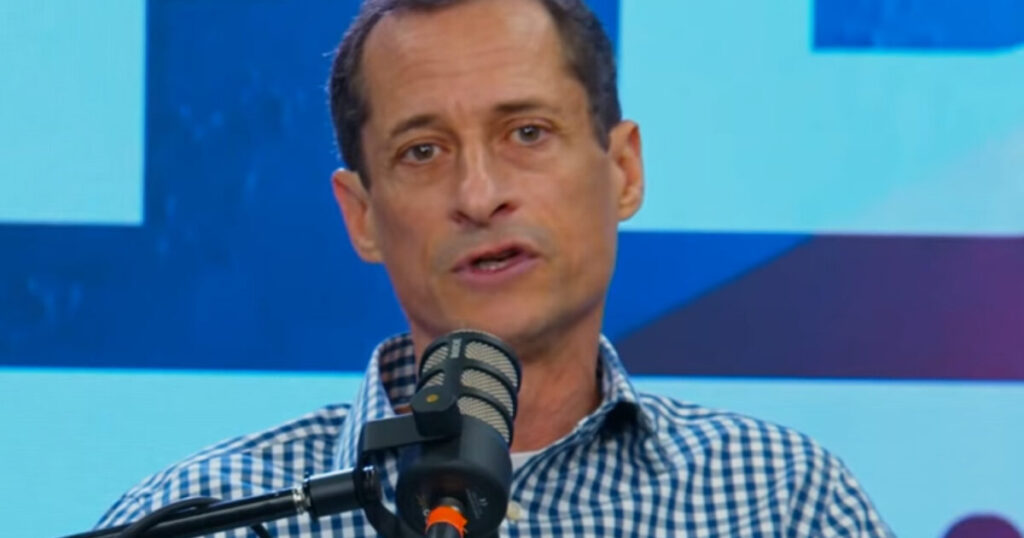Anthony Weiner, once a prominent New York Congressman, is making attempts to revive his political career despite a tumultuous past involving multiple scandals. Following his resignation due to a sexting scandal, Weiner was later convicted for sexting a minor and served 21 months in a federal prison. Now at 60 years old, he has filed to run for a seat on the New York City Council. Weiner communicated his intent to return to politics through a humorous post on X (formerly Twitter), alluding to the lack of financial backing for his campaign with a reference to “Mr. Moneybags.” This self-deprecating remark highlights the uphill battle he faces in securing both support and funds for his candidacy.
In a recent episode of his radio show, “The Middle,” Weiner reflected on his desire for public service, acknowledging the weight of his past mistakes. He discussed his struggles with addiction and the consequences of his actions, emphasizing a sense of personal reckoning. Notably, he articulated a perceived need for the Democratic Party to adopt a more assertive approach in political contests, suggesting that current strategies may be insufficient. Weiner’s commentary suggests that he still feels a calling to contribute to public life, despite the personal and professional hurdles he has encountered.
While Weiner has filed paperwork for his campaign, he downplayed his actions by describing it as merely an exploratory committee. This cautious approach allows him to gauge interest and possibly refine his political branding before fully committing to the race. Interestingly, he has already lined up a speaking engagement with the Downtown Independent Democrats, indicating that he is actively seeking opportunities to engage with party members and the electorate, albeit it under an exploratory guise. This step appears to be a tactical move to bolster his visibility and credibility within the political arena.
Weiner’s historical attempts at political rehabilitation are fraught with challenges. Following his resignation from Congress, he initially sought to become the Mayor of New York City in 2013. Unfortunately for him, that bid faltered spectacularly when evidence of his online sexual behaviors surfaced, culminating in his campaign finishing in a dismal fifth place during the primaries. His past failures serve as both cautionary tales and reminders of how public scrutiny can dismantle a political career, emphasizing the profound consequences of personal indiscretions in public life.
In 2017, Weiner’s situation took a turn for the worse when he faced legal repercussions for his conduct involving a minor. His guilty plea led to a prison sentence, and he was mandated to register as a sex offender, further complicating any potential comeback in the political sphere. These details paint a vivid image of the challenges he faces as he seeks renewal, rendering his prospective candidacy not only about personal ambition but also a significant test of public sentiment and forgiveness. Whether constituents can overlook his past misdeeds remains to be seen.
As Weiner embarks on this new chapter, he embodies both the resilience of a politician committed to public service and the lingering shadows of his past. His journey might resonate with those who believe in redemption, while simultaneously serving as a point of contention for those advocating for integrity in public office. The upcoming months will likely reveal how effectively he can navigate the political landscape and whether support for his candidacy materializes, which will ultimately serve as a litmus test of the public’s willingness to embrace a former Congressman who has fallen from grace yet seeking to return to the spotlight.

